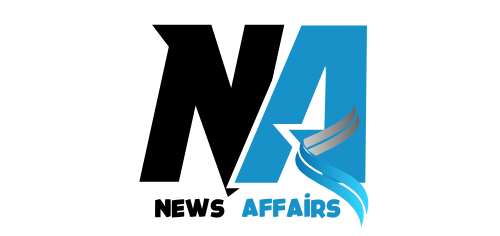NEWS AFFAIRS 7 : WHERE EVERY STORY HAS IT'S AFFAIR!
Last updated on July 27th, 2024 at 11:57 am

Table of Contents
The US Federal Government is a powerful entity that not only governs the United States but also exerts significant influence on the global stage. Understanding its structure, functions, and mechanisms of control can provide insight into how it shapes international policies and impacts the world. This article explores the US Federal Government, its components, and how it controls global dynamics.
Structure of the US Federal Government
The Three Branches: Executive, Legislative, and Judicial
The US Federal Government is divided into three branches, each with distinct functions and powers.
- Executive Branch
- President: The President is the head of state and government, responsible for enforcing laws and overseeing the federal administration.
- Vice President: The Vice President supports the President and can assume the presidency if needed.
- Cabinet: A group of advisors and heads of federal departments who assist the President in decision-making.
- Legislative Branch
- Congress: Composed of the Senate and the House of Representatives, Congress is responsible for making laws, approving budgets, and overseeing the executive branch.
- Senate: Each state has two senators, regardless of population.
- House of Representatives: The number of representatives is based on each state’s population.
- Judicial Branch
- Supreme Court: The highest court in the land, it interprets the Constitution and ensures laws are applied fairly.
- Lower Courts: Includes appellate and district courts that handle various legal cases.
The Role of the Constitution

The US Constitution is the supreme law of the land, establishing the framework for the federal government and protecting individual rights. It ensures a system of checks and balances, preventing any single branch from becoming too powerful.
Functions of the US Federal Government
Domestic Policies
The federal government creates and enforces laws that affect daily life, including healthcare, education, and transportation. It regulates industries, protects civil rights, and ensures public safety.
Foreign Policies
The US Federal Government formulates foreign policies that shape international relations. These policies include trade agreements, defense pacts, and diplomatic initiatives aimed at promoting national interests and global stability.
Mechanisms of Global Control

Economic Influence
The United States has a significant impact on the global economy through its monetary policy, trade agreements, and financial institutions. The US dollar is a primary reserve currency, and decisions made by the Federal Reserve can influence global markets.
Military Power
With the world’s largest military budget, the US exerts considerable influence through its military presence. US bases around the world, defense alliances, and advanced technology contribute to its ability to project power globally.
Diplomatic Relations
The US maintains a vast network of embassies and consulates, engaging in diplomacy to foster alliances and address international issues. Through organizations like the United Nations, the US influences global policies and promotes its values.
Impact on International Organizations

United Nations
As a founding member and host country, the US plays a crucial role in the United Nations. It provides significant funding and leadership in peacekeeping missions, humanitarian aid, and international law.
NATO
The North Atlantic Treaty Organization (NATO) is a military alliance led by the US. It aims to ensure the security of member states through collective defense and has been a key player in international conflicts.
World Trade Organization
The US is a leading member of the World Trade Organization (WTO), shaping global trade rules and resolving disputes between countries to promote fair and open trade.
Soft Power and Cultural Influence

Media and Entertainment
American media and entertainment, including movies, music, and television, have a global audience. This cultural influence helps spread American values and ideals worldwide.
Education and Research
US universities and research institutions attract students and scholars from around the globe. This exchange of knowledge and culture strengthens international ties and promotes innovation.
Challenges and Criticisms
Global Perception
Despite its influence, the US faces criticism and resistance from other nations. Policies perceived as unilateral or aggressive can lead to anti-American sentiment and undermine international cooperation.
Ethical Concerns
Issues such as military interventions, surveillance, and economic sanctions raise ethical questions. Balancing national interests with global responsibility remains a challenge for the US Federal Government.
FAQs
What are the three branches of the US Federal Government?
The three branches are the Executive (President and Cabinet), Legislative (Congress: Senate and House of Representatives), and Judicial (Supreme Court and lower courts).
How does the US exert economic influence globally?
Through monetary policy, trade agreements, financial institutions, and the US dollar’s status as a primary reserve currency.
What role does the US play in international organizations?
The US is a key player in organizations like the United Nations, NATO, and the World Trade Organization, influencing global policies and promoting stability.
How does American culture influence the world?
A: Through media, entertainment, and education, spreading American values and ideals globally.
What challenges does the US face in its global role?
Challenges include managing global perception, addressing ethical concerns, and balancing national interests with global responsibilities.
The US Federal Government’s structure and functions enable it to wield significant influence both domestically and internationally. Through economic power, military strength, and diplomatic efforts, the US shapes global dynamics and promotes its interests. However, this influence comes with challenges and responsibilities, requiring careful navigation of complex geopolitical landscapes. Understanding the mechanisms of control and the impact of the US Federal Government provides insight into its role on the world stage.









